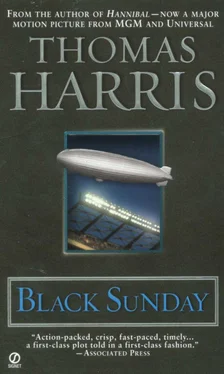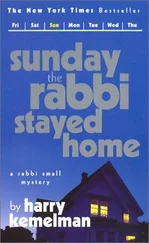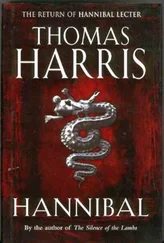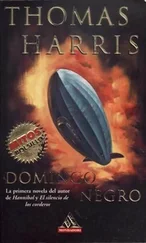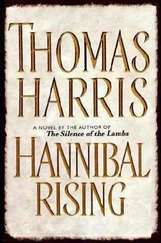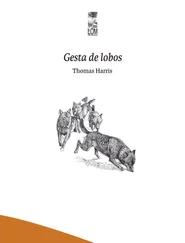Awad was to be thoroughly sanitized—no evidence of his origin would remain on his person. All that was necessary, really, was sufficient identification to get him into the United States. He would not be leaving, since he would be vaporized in the explosion. Awad was not aware of this last consideration. In fact, he had only been told to report to Muhammad Fasil and follow orders. He had been assured that he would get out of it all right. To preserve this illusion it was necessary to provide Awad with an escape plan and the papers to go with it.
On December 31, the day after Awad’s release from prison, his Libyan passport, several recent photographs, and samples of his handwriting were delivered to a small printshop in Nicosia.
The concept of providing an entire “scene”—a set of mutually supportive papers such as passport, driving license, recent correspondence properly postmarked, and receipts—is a relatively recent development among forgers in the West, coming into wide practice only after the narcotics trade was able to pay for such elaborate service. Forgers in the Middle East have been creating “scenes” for their customers for generations.
The forger used by Al Fatah in Nicosia did marvelous work. He also supplied blank Lebanese passports to the Israelis, who filled in the details themselves. And he sold information to the Mossad.
It was an expensive job the Libyans wanted—two passports, one Italian bearing a U.S. entry stamp and one Portuguese. They did not quibble at the price. What is valuable to one party is often valuable to another, the forger thought as he put on his coat.
Within the hour, Mossad headquarters in Tel Aviv knew who Awad was and whom he would become. Awad’s trial had received considerable attention in Benghazi. A Mossad agent there had only to look in the public prints to find out Awad’s particular skill.
In Tel Aviv, they put it together. Awad was a helicopter pilot who was going into the United States one way and coming out another. The long line to Washington hummed for forty-five minutes.
ON THE AFTERNOON OF DECEMBER 30,a massive search was begun at Tulane Stadium in New Orleans in preparation for the Sugar Bowl Classic to be played on New Year’s Eve. Similar searches were scheduled for December 31 at stadiums in Miami, Dallas, Houston, Pasadena-every city that would host a major college bowl game on New Year’s Day.
Kabakov was glad that the Americans finally had marshaled their great resources against the terrorists, but he was amused by the process that prompted them. It was typical of bureaucracy. FBI Director John Baker had called a top-level meeting of FBI, National Security Agency, and Secret Service personnel the previous afternoon, immediately after his talk with Kabakov and Corley. Kabakov, sitting in the front row, felt many pointed stares while the assembled officials emphasized the flimsiness of the evidence pointing to the target—a single magazine, unmarked, containing an article about the Super Bowl.
Each of the heavyweights from the FBI and the National Security Agency seemed determined not to let another out skepticize him as Corley outlined the theory of an attack on the Super Bowl game in New Orleans.
Only the Secret Service representatives, Earl Biggs and Jack Renfro, remained silent. Kabakov thought the Secret Service agents were the most humorless men he had ever seen. That was understandable, he decided. They had much to be humorless about.
Kabakov knew that the men in this meeting were not stupid. Each of them would have been more receptive to an uncommon idea if the idea were presented to him in privacy. When surrounded by their peers, most men have two sets of reactions—the real ones and those designed for evaluation by their fellows. Skepticism was established as the proper attitude early in the meeting and, once established, prevailed throughout Corley’s presentation.
But the herd principle also worked in the other direction. As Kabakov recounted Black September’s maneuvers before the strike at Munich and the abortive attempt on the World Cup soccer matches six months ago, the seed of alarm was planted. On the face of it, was an attack on the Super Bowl less plausible than an attack on the Olympic Village? Kabakov asked.
“There’s not a Jewish team playing” was an immediate rejoinder. It did not get a laugh. As the officials listened to Kabakov, dread was present in the room, subtly communicated from one listener to the next by small body movements, a certain restiveness. Hands fidgeted, hands rubbed faces. Kabakov could see the men before him changing. For as long as he could remember, Kabakov had disturbed policemen, even Israeli policemen. He attributed this to his own impatience with them, but it was more than that. There was something about him that affected policemen as a trace of musk carried on the wind sets the dogs on edge, makes them draw closer to the fire. It says that out there is something that does not love the fire; it is watching and it is not afraid.
The evidence of the magazine, supplemented by Fasil’s track record, began to loom large and was extrapolated by the men in the meeting room. Once the possibility of danger was admitted, one official would not call for less stringent measures than the next: Why just the Super Bowl as a possible target? The magazine showed a packed stadium—why not any packed stadium? My God, the Sugar Bowl is New Year’s Eve-day after tomorrow—and there are bowl games all over the country on New Year’s Day. Search them all.
With apprehension came hostility. Suddenly Kabakov was acutely aware that he was a foreigner, and a Jew at that. Kabakov was instantly aware that a number of the men in the room were thinking about the fact that he was a Jew. He had expected that. He was not surprised when, in the minds of these men with their crisp haircuts and law school rings, he was identified with the problem rather than with the solution. The threat was from a bunch of foreigners, of which he was one. The attitude was unspoken, but it was there.
“Thank you, old buddies,” Kabakov said, as he sat down. You don’t know from foreigners, old buddies, he thought. But you may find out on January 12.
Kabakov did not think it reasonable that, once Black September had the capability to strike at a stadium, they would hit one that did not contain the president in preference to one that did. He stuck with the Super Bowl.
On the afternoon of December 30 he arrived in New Orleans. The search was already under way at Tulane Stadium in preparation for the Sugar Bowl. The task force at Tulane Stadium was composed of fifty men-members of the FBI and police bomb sections, police detectives, two dog handlers from the Federal Aviation Administration with dogs trained to smell explosives, and two U.S. Army technicians with an electronic “sniffer” calibrated on the Madonna recovered from the Leticia.
New Orleans was unique in the fact that Secret Service personnel aided in the search and in the necessity for doing the job twice—today for the Sugar Bowl and on January 11, the eve of the Super Bowl. The men went about their work quietly, largely ignored by the crew of maintenance men putting the final touches on the stadium.
The search did not interest Kabakov much. He did not expect the searchers to find anything. What he did was stare into the face of every employee of Tulane Stadium. He remembered how Fasil had sent his guerrillas to find employment in the Olympic Village six weeks ahead of time. He knew the New Orleans police were running background checks on stadium employees, but still he stared into their faces as though hoping for an instinctive, visceral reaction if he saw a terrorist. Looking at the workers, he felt nothing. The background check exposed one bigamist, who was held for extradition to Coahoma County, Mississippi.
Читать дальше
